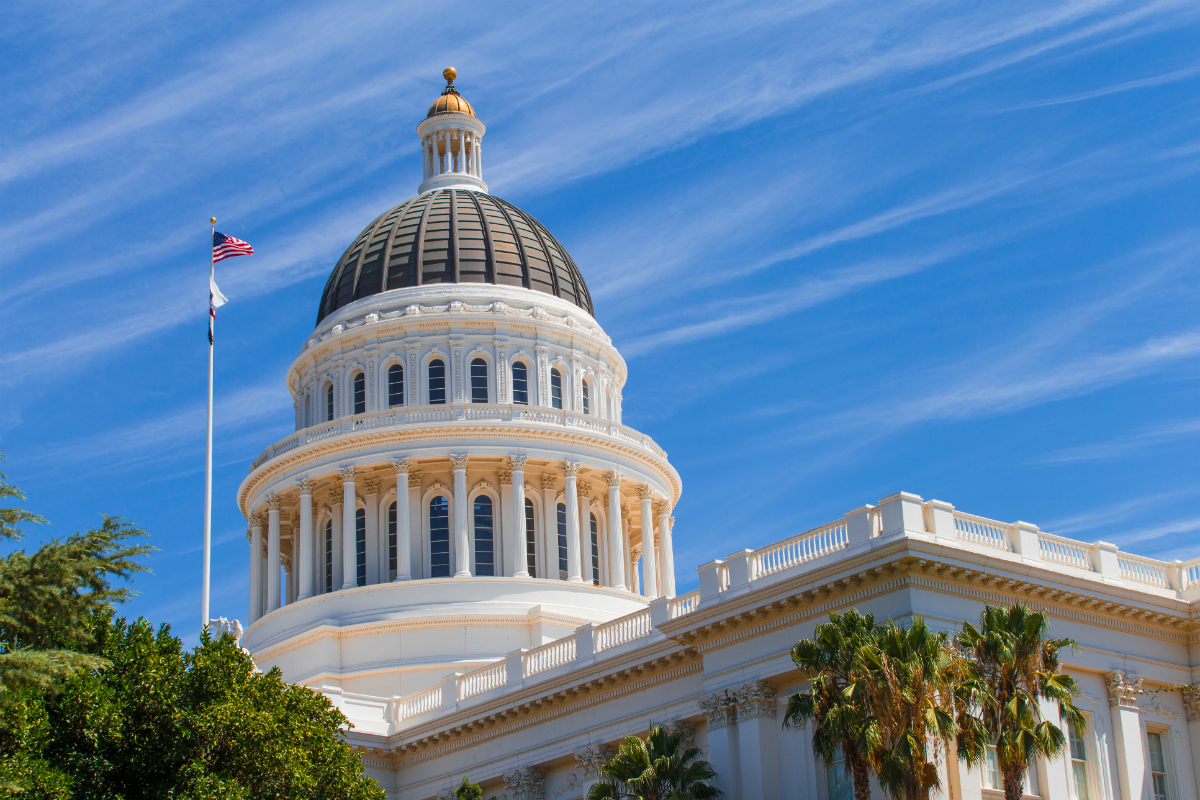Representatives from four textbook publishers committed June 21 before the special Taskforce on Inclusive Education to protect and provide student access to information free from discrimination and inclusive of the diverse narratives that reflect the student body of California.
The new taskforce was convened following the June 1 release of a joint letter from Gov. Gavin Newsom, Attorney General Rob Bonta and Superintendent of Public Instruction Tony Thurmond, cautioning book banning, or restricting access to curriculum and instructional materials that “reflect the diverse experiences and perspectives of Californians.”
Questioned during a press conference prior to the taskforce meeting about how state efforts align with local control in schools, Thurmond said, “There’s no doubt that this is a state with local control as a practice and priority, but as you’ve heard from my colleagues, there are at least two bills that aim to curtail the actions of those who are hiding racism and hate under the guise of local control. Local control doesn’t give you the right to inflict pain on someone or to threaten someone. Students have been asking for the right to not be bullied because they’re LGBTQ. They have been bullied by adults simply for raising their voices for what they believe. So, there will be legislation — there is legislation — that will address the actions of these school boards.”
Those bills, introduced by several members of the taskforce, include:
- Assembly Bill 1078 (Jackson, D-Perris): Would revise the list of culturally and racially diverse groups that school boards must ensure are accurately being portrayed in adopted learning materials and would require the California Department of Education to issue guidance related to how to help school districts, county offices of education, charter schools and school personnel manage conversations about race and gender, and how to review instructional materials to ensure that they represent diverse perspectives and are culturally relevant.
- AB 5 (Zbur, D-Santa Monica): Would require the CDE to finalize the development of an online training delivery platform and an online training curriculum to support LGBTQ cultural competency training for teachers and other certificated employees by July 1, 2025. Local educational agencies would be required to provide at least one hour of required training annually to teachers and other certificated employees at those schools commencing with the 2025–26 school year and ending with the completion of the 2029–30 school year.
- AB 1352 (Bonta, D-Oakland): Would expressly prohibit boards of education from taking an action that contradicts any existing law requiring inclusive policies, practice and curriculum in schools. The bill would also authorize boards of education to censure a member or, by a two-third vote of the governing board, remove a member from office if the member prevents the board from conducting its business or adopts a policy that contradicts any existing law requiring a school district to have inclusive policies, practices, and curriculum.
Assemblymember Mia Bonta, who served as an Alameda Unified School District trustee, including as board president from 2018–21, said her time on the local school board helped to inform her bill.
Comprising lawmakers and Thurmond, the taskforce also heard testimony from Karen Korematsu, founder and executive director of the Fred T. Korematsu Institute, Christopher Nellum from Education Trust–West and Joe Johnson, a member of Thurmond’s Black Student Achievement Taskforce.
Publishers spoke to efforts taken to diversify textbooks and pledged to commit to diversifying depictions in instructional materials used in schools, with specific attention to both images and stories of marginalized groups including LGBTQ, Black, Native American, Latino, Asian American and Pacific Islander people and those with disabilities.
Recent state actions
The joint letter from state officials highlighted case law and state constitutional language restricting the removal of books from libraries and schools as well as the responsibilities of school administrators to preserve freedom of speech and expose students to various world views. It also encouraged school governance teams to ensure they are complying with the law when making decisions about curriculum, instructional materials and library books. The Attorney General may review a governing board’s actions, policies and procedures related to the removal or banning of instructional materials from classrooms or libraries, according to the letter.
Assemblymember Rick Zbur, former executive director of Equality California, the nation’s largest statewide LGBTQ civil rights organization, noted that research has long shown worse academic and personal outcomes for LGBTQ youth when they do not have supportive living and/or school environments. These include lower attendance rates, GPAs, self-esteem and post-secondary education enrollment, and higher rates of disciplinary issues, depression and suicide ideation.
“Schools play a crucial role in supporting these students who may lack acceptance at home and in their communities. With the right programs and adoption of best practices, schools can provide safe and inclusive environments where students can thrive academically, emotionally and socially, but many schools have a long way to go,” he said. “School curriculum is a large part of the overall school experience and has the ability to significantly impact students’ well-being and sense of belonging. LGBTQ+ inclusive curriculum helps students feel seen, valued and respected. It also benefits non- LGBTQ+ students by fostering understanding and empathy and acceptance. Curriculum that focuses on the contributions of members of communities of color, ethnic studies, religious minorities and women are similarly critical.
“However, school boards in many cases are facing challenges and protests around inclusive curriculum,” Zbur continued. “Oversight of curriculum implementation is critical to ensure that all students are seen, respected and valued. We hope this effort provides school boards and communities with the resources and the transparency that they want and deserve. By working together and providing critical support for students, educators, administrators and school boards, we can make a significant difference in the lives of future generations.”
A snapshot of book bans
The American Library Association documented in its annual book censorship report 1,269 challenges to more than 2,500 books in 2022 — the highest number of attempted book bans since tracking began in 2001. It was a 75 percent jump from 2021, which held the previous record. Of the 13 books that made the list of “Most Challenged Books” last year, seven titles — including three of the top four — were challenged for having LGBTQ content, the association found. That trend was reflected in California, where nearly all of the top 10 challenged titles reflected LGBTQ topics or characters.
Prior to 2020, the “vast majority” of challenges against books were made by individuals who sought to restrict access to a single book their child was reading, according to the ALA. However, 90 percent of last year’s challenges were directed at multiple books and nearly a fifth of them were made by “political/religious groups.”
CSBA has sample policies available to help member school districts and county offices of education uphold their concurrent obligations to the law and to the interests of their communities:
- Board Policy/Administrative Regulation 6161.1 – Selection and Evaluation of Instructional Materials
- BP 6161.11 – Supplementary Instructional Materials
- BP 6163.1 – Library Media Centers
- Policy 6144 – Controversial Issues
- Policy 6142.1 -Sexual Health And HIV/AIDS Prevention Instruction
- BP/AR 1312.2 – Complaints Concerning Instructional Materials





